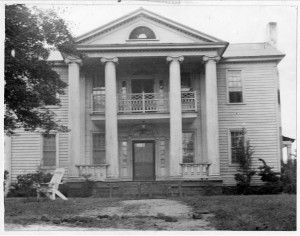The Digital Public Library of America (DPLA) is on the way to connecting online collections from coast to coast by 2017 – an effort boosted by a new $3.4 million investment, comprising $1.9 million from the Alfred P. Sloan Foundation and $1.5 million from the John S. and James L. Knight Foundation. These two new awards, coupled with significant earlier support from the Institute of Museum and Library Services and the National Endowment for the Humanities, will allow DPLA to open new Service Hubs that provide a way for all cultural heritage organizations across the country to connect through one national collection.
The Digital Public Library of America brings together the riches of America’s libraries, archives and museums, and makes them freely available to the world. DPLA provides public access to more than 10 million items – including the written word plus works of art and culture – from 1,600 institutions.
“The Sloan and Knight foundations have been such generous contributors to DPLA’s success, from our planning phase to the rapid build-out of our national network,” said Dan Cohen, executive director of the Digital Public Library of America. “With these major grants, we will be able to bring online 16 new states, and approach completion of that network.”
This series of investments represents a significant milestone in the development and growth of DPLA’s Service Hubs. These Services Hubs are state or regional digital collaboratives that host, aggregate or otherwise bring together digital objects from libraries, archives, museums and other cultural heritage institutions in their state or region. At the library’s launch in 2013, DPLA represented a collaborative of 16 major partners, covering nine states. The number has since doubled to more than 20 states, and is on the way to 50 in the next two years. As thousands of digital collections have been brought together through DPLA’s platform, fascinating new projects and tools using America’s cultural heritage have emerged, including curated exhibitions on historical topics and eras, dynamic visualizations and other cutting-edge apps, community engagement opportunities at an international scale, and much more.
These new grants will accelerate the growth of the Hubs program so that all collections and item types in America can easily be a part of DPLA. The Sloan Foundation’s $1.9 million award will build on its continued support since DPLA’s launch to establish Service Hubs in eight uncovered states and to further explore how it might address e-books in the collection. The Knight Foundation’s $1.5 million award will facilitate the expansion of the DPLA’s hub network in another eight states where Knight Foundation invests.
“We are delighted to continue our founding support of DPLA with this $1.9 million grant to facilitate the completion of a nationwide Service Hub network—a unique state-by-state approach to aggregating and sharing the digital record of America’s cultural heritage—and to help pilot a modern ebook distribution system for libraries,” said Doron Weber, Vice President Programs and Program Director at the Sloan Foundation. “DPLA represents an historic, non-commercial, grass-roots network to collect, curate, innovate and disseminate a comprehensive catalog of every form of digital knowledge for the benefit of all under the highest standards of quality, stewardship and open access, and Sloan is proud to be a small part of this great undertaking with many wonderful and generous partners such as the Knight Foundation.”
“An informed and engaged public is a prerequisite of American democracy. Libraries – be they physical or digital – play a fundamental role in encouraging people to know more about and become involved in the places where they live. DPLA brings to life the unique items locked away in our nations libraries and archives while providing an invaluable opportunity to bring this information into peoples lives and homes – better connecting them to each other and their communities,” said Jorge Martinez, vice president and chief technology officer at Knight Foundation, which also announced today that in 2016 it will host an international call for ideas on innovating libraries, the second Knight News Challenge on Libraries.
“With this gracious, continued support from Sloan and Knight, we can continue to focus on our largest strategic effort, which is to expand the DPLA network and provide an on-ramp for all states to participate,” said Emily Gore, DPLA’s director of content. “By building out DPLA’s coverage of state and regional Service Hubs, new communities and organizations from across the country will have access to essential 21st century services and programs, further enriching the scale and availability of our shared national cultural heritage online.”
To find out more about DPLA’s efforts towards completing the map of state-based Service Hubs, in addition to other significant initiatives, read the DPLA’s three-year strategic plan, published in January 2015.
###
About the Digital Public Library of America
The Digital Public Library of America (http://dp.la) brings together the riches of America’s libraries, archives, and museums, and makes them freely available to the world. It strives to contain the full breadth of human expression, including the written word, works of art and culture, records of America’s heritage, and the efforts and data of science. DPLA’s ever-expanding collection includes over 10 million items from 1,600 institutions across the United States.
About the Alfred P. Sloan Foundation
The Sloan Foundation is a philanthropic, not-for-profit grantmaking institution based in New York. Established in 1934 by Alfred Pritchard Sloan Jr., then-president and chief executive officer of General Motors, the foundation makes grants in support of original research and education in science, technology, engineering, mathematics and economics. For more, visit sloan.org.
About the John S. and James L. Knight Foundation
Knight Foundation supports transformational ideas that promote quality journalism, advance media innovation, engage communities and foster the arts. We believe that democracy thrives when people and communities are informed and engaged. For more, visit knightfoundation.org.
*This announcement was originally posted on DPLA’s site at DPLA Updates


